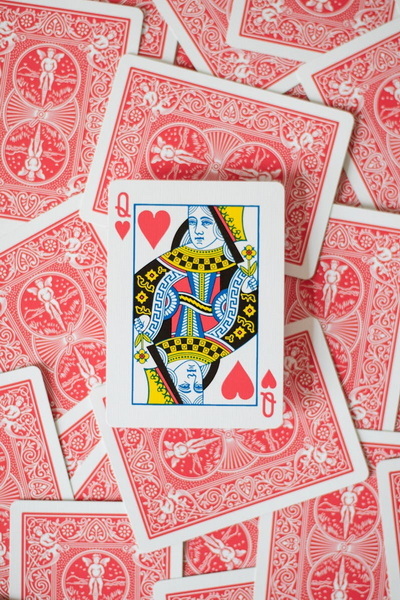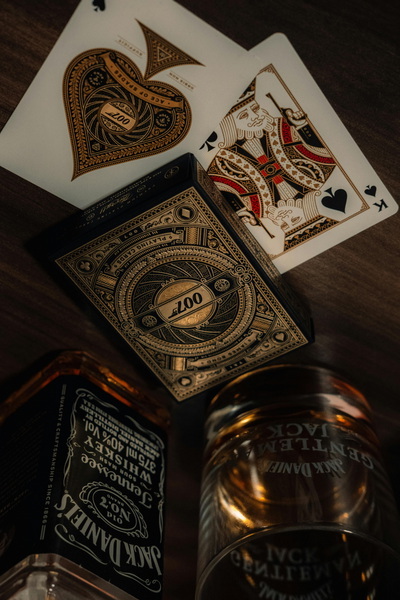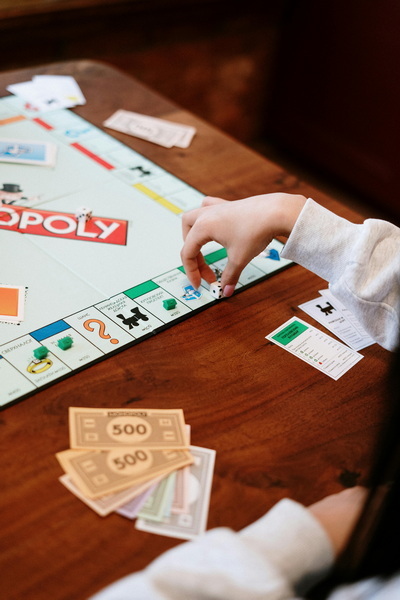Content Menu
● Introduction to BS
>> What You Need to Play BS
>> Setting Up the Game
● Rules of BS
>> The Order of Play
>> Calling BS
>> Winning the Game
● Strategies for Success
>> Organize Your Cards Wisely
>> Bluff Effectively
>> Observe Other Players
● Variations of BS
● Conclusion
● Related Questions
>> 1. What is the minimum number of players required for BS?
>> 2. Can I use jokers in BS?
>> 3. How do I know when to call "BS"?
>> 4. What happens if I call "BS" incorrectly?
>> 5. How does one win at BS?
Playing the card game BS, also known as Bullshit, is a thrilling experience that combines strategy, deception, and a bit of luck. This game is perfect for gatherings, whether among friends or family, and can accommodate a wide range of players. In this article, we will explore the rules, strategies, and nuances of BS, ensuring you have everything you need to enjoy this entertaining card game.

Introduction to BS
BS is a bluffing card game where the objective is simple: be the first player to get rid of all your cards. The game requires players to strategically play their cards while deciding when to bluff and when to call out others on their potential lies. The excitement lies in the social interaction and the psychological warfare that unfolds as players try to outsmart each other.
What You Need to Play BS
To play BS, you will need:
- A standard deck of 52 playing cards (jokers are optional).
- A minimum of three players; however, the game is best enjoyed with four to six players.
- A flat surface for playing.
Setting Up the Game
1. Deal the Cards: Shuffle the deck thoroughly and deal all cards evenly among the players. It's acceptable if some players have one more card than others.
2. Organize Your Cards: Once dealt, players can look at their cards and organize them in a way that suits their strategy. Common methods include sorting by rank or suit.
3. Determine Who Goes First: Traditionally, the player with the Ace of Spades starts the game. If no one has it, the youngest player can begin.
Rules of BS
Understanding the rules is crucial for enjoying BS. Here's how to play:
The Order of Play
1. Starting Player: The first player lays down one or more cards face down in the center and declares what rank they are playing (e.g., "two Aces"). They can either be truthful or bluff.
2. Following Turns: The next player must then play cards of a higher rank than those previously declared. For example, if Aces were played, the next player must play Twos.
3. Bluffing: Players can lie about the cards they are placing down. For instance, if a player has no Aces but wants to get rid of an unwanted card, they might say they are playing an Ace while actually laying down a different card.
Calling BS
At any time during another player's turn, someone can call "BS" if they suspect that player is bluffing. Here's what happens:
- If the challenged player was indeed lying, they must pick up all cards in the discard pile.
- If they were truthful, then the challenger must take the pile instead.
Winning the Game
The game continues until one player successfully discards all their cards. That player is declared the winner. In larger games, you can continue playing to determine second and third places as well.

Strategies for Success
Winning at BS involves a mix of strategy and psychology. Here are some effective strategies:
Organize Your Cards Wisely
How you organize your cards can significantly impact your gameplay:
- Numerical Order: Keep your cards sorted from low to high (Aces through Kings). This allows for quick access during your turn.
- Mixed Order: Alternatively, mixing your cards can keep opponents guessing about what you have.
Bluff Effectively
Bluffing is at the heart of BS:
- Timing: Choose moments when your opponents are least likely to challenge you. For example, if they have just called out someone else's bluff recently, they may be hesitant to do so again.
- Confidence: Present your bluffs confidently; hesitation may lead others to suspect that you are lying.
Observe Other Players
Pay attention to how other players behave:
- Patterns: Notice if certain players tend to bluff more often or consistently tell the truth. This knowledge can help you decide when to call "BS."
- Card Tracking: Try to remember which cards have been played; this will help you make informed decisions about calling bluffs.
Variations of BS
To keep things fresh and exciting, consider these variations:
1. Multiple Decks: For larger groups, use two decks shuffled together. This increases chaos and makes bluffing more challenging.
2. Jokers as Wild Cards: Introduce Jokers into play as wildcards that can represent any card.
3. Changing Play Order: Instead of ascending order from Aces to Kings, allow players to choose any card rank when it's their turn.
4. Pass Option: Players can choose to pass instead of playing a card; however, they cannot rejoin until everyone else has passed or a bluff has been called.
5. Tournament Style: Organize a tournament where players compete in multiple rounds for bragging rights or prizes.
Conclusion
BS is not just about luck; it's a game that thrives on social interaction and strategic thinking. By mastering its rules and employing effective strategies, you can enhance your chances of winning while ensuring everyone has a great time. Remember that bluffing effectively requires practice and observation—so don't hesitate to play multiple rounds!

Related Questions
1. What is the minimum number of players required for BS?
The minimum number of players required for BS is three; however, it is best played with four to six players for optimal enjoyment.
2. Can I use jokers in BS?
Yes, jokers can be included as wildcards in some variations of BS, allowing them to represent any card.
3. How do I know when to call "BS"?
Pay attention to other players' patterns and behaviors; call "BS" when you suspect someone is bluffing based on previous plays or inconsistencies in their claims.
4. What happens if I call "BS" incorrectly?
If you call "BS" incorrectly and the challenged player was truthful, you must pick up all cards in the discard pile.
5. How does one win at BS?
To win at BS, be the first player to successfully discard all your cards by either playing them honestly or bluffing effectively without getting caught.
































